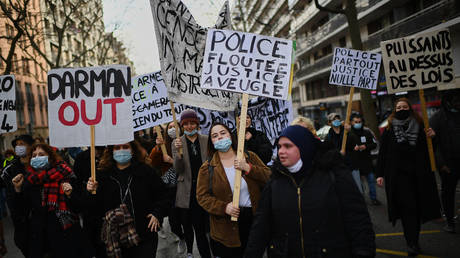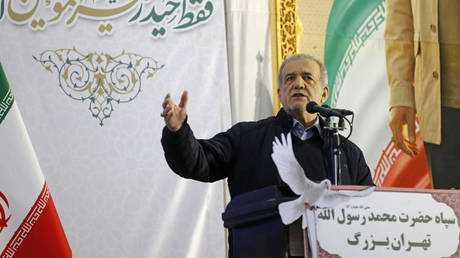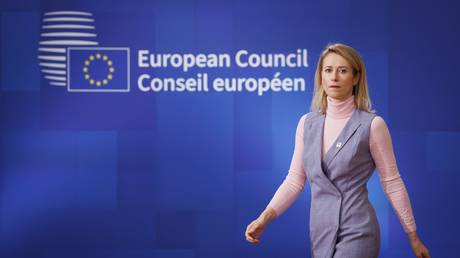
France’s highest legislative court has rejected a key article of a controversial bill backed by President Emmanuel Macron’s government which would make it an offense to share images that identify serving police officers.
Under Article 24 of the “global security” bill, the distribution of images that maliciously identify on-duty police or military officers by face or name is punishable by up to five years in prison and a €75,000 ($91,000) fine.
The draft legislation has sparked widespread protests since it was introduced in November 2020, with thousands taking to the streets to protest the bill’s potential impact on public freedoms and the ability to document police conduct.
In its ruling on Thursday, the Constitutional Council noted the legal imprecision of Article 24 – which was rebranded as Article 52 after the law was passed by parliament on April 15.
The nine-member Council said the “legislature has not sufficiently defined the elements constituting the offense,” thus rendering the article “unconstitutional.”
Elements of the offense as it defined are “vague and susceptible to multiple interpretations,” the Council said, arguing that the current text is not clear on whether legislators want to protect officers in the field, or the police more broadly.
The Council also argued that such an offense would “infringe on freedom of expression”, given its potential use to justify the arrest of demonstrators and journalists who film police at protests.
The ruling comes as a blow for Macron’s government, including Interior Minister Gerald Darmanin, who, alongside police unions, was a major backer of the bill as a way to protect officers from violence while they are serving in the line of duty.
Responding to the decision on Thursday, Damanin said in a tweet that he “took note” of the Council’s arguments and would look to “improve the provisions” subject to its ruling.
Christophe Deloire, of non-profit organization Reporters Without Borders, said in a tweet the decision was “very good news for the ability of journalists to cover protests.”
Like this story? Share it with a friend!




